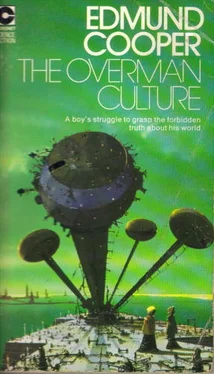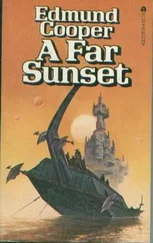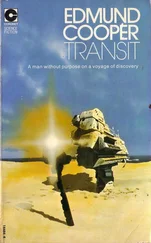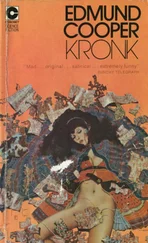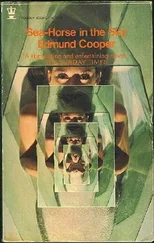Edmund Cooper - The Overman Culture
Здесь есть возможность читать онлайн «Edmund Cooper - The Overman Culture» весь текст электронной книги совершенно бесплатно (целиком полную версию без сокращений). В некоторых случаях можно слушать аудио, скачать через торрент в формате fb2 и присутствует краткое содержание. Город: London, Год выпуска: 1977, ISBN: 1977, Издательство: Coronet Books, Жанр: Фантастика и фэнтези, на английском языке. Описание произведения, (предисловие) а так же отзывы посетителей доступны на портале библиотеки ЛибКат.
- Название:The Overman Culture
- Автор:
- Издательство:Coronet Books
- Жанр:
- Год:1977
- Город:London
- ISBN:978-034017860
- Рейтинг книги:5 / 5. Голосов: 1
-
Избранное:Добавить в избранное
- Отзывы:
-
Ваша оценка:
- 100
- 1
- 2
- 3
- 4
- 5
The Overman Culture: краткое содержание, описание и аннотация
Предлагаем к чтению аннотацию, описание, краткое содержание или предисловие (зависит от того, что написал сам автор книги «The Overman Culture»). Если вы не нашли необходимую информацию о книге — напишите в комментариях, мы постараемся отыскать её.
The Overman Culture — читать онлайн бесплатно полную книгу (весь текст) целиком
Ниже представлен текст книги, разбитый по страницам. Система сохранения места последней прочитанной страницы, позволяет с удобством читать онлайн бесплатно книгу «The Overman Culture», без необходимости каждый раз заново искать на чём Вы остановились. Поставьте закладку, и сможете в любой момент перейти на страницу, на которой закончили чтение.
Интервал:
Закладка:
It was while he and Jane were resting after a light lunch that they were approached by Arthur Wellesley and two other drybones whom he referred to as his lieutenants.
Arthur Wellesley was tall. He wore a white shirt, a black belt, and black trousers and shoes, as did his companions. He stood with his feet astride and one hand on his belt, as did his companions. It looked like an affectation, or a regulation pose.
Ernest and Jane were sitting on the grass on the Heath, with their picnic basket open and the remains of the meal between them. Jane was frightened by the oddly formidable appearance of the drybones.
“What are you doing here?” demanded Arthur Wellesley.
“I would have thought that was obvious,” retorted Ernest calmly. “Who are you?”
“Arthur Wellesley, commander of the North London High School defense unit.”
“Commander of what?”
“The North London High School defense unit. You are from the Central London Group, I suppose.”
“Yes. My name is Ernest Rutherford, and this is Jane Austen.”
“Are you organized?” Arthur Wellesley seemed to ignore Jane’s existence completely.
“Organized?”
“Militarily organized.”
“No.”
“You have a leader?”
“Yes, we have a leader.”
“Good. Bring him here tomorrow morning. I want to talk to him.”
“I don’t know that he will want to talk to you.”
“He will,” said Arthur Wellesley with confidence. “Tell him it is important—and ask him if he knows Aldous Huxley.”
With that, the three drybones simultaneously turned and marched away, perfectly in step, perfectly in line, as if they had been practicing a long time.
The picnic atmosphere had evaporated, the lazy afternoon with Jane had disintegrated. Now, Ernest would have to get back to Victoria as soon as possible and talk things over with Michael.
Jane was pale and shaking. Ernest put his arms round her, trying to comfort her. He realized with comical amazement then that he had never held Jane in his arms before. He had been absorbed by other matters. Too absorbed.
“They looked dangerous,” explained Jane. “I—I felt they were dangerous.”
“Perhaps it is because they dress the same. It’s like a uniform.”
“Do you think they are dangerous?”
“I don’t know. Let us go and talk to Michael. That is the most intelligent thing to do.”
Jane began to pack the picnic basket. “I feel cold.”
“It’s a warm day.”
“I still feel cold. I was all right until they came…. Do you think they know about Aldous Huxley?”
Ernest shrugged. “I haven’t the faintest idea. We are all taking part in what is either a nasty comedy or a funny horror film. We have to live with absurdities and illogicalities and a great fog of ignorance. The point is, we have to live with it, Jane. If we worry too much—if we even think about it too much—we shall go out of our minds. So just try to take things as they come, my dear. A platitude, I know. But it is the only comfort I can offer.”
Jane had packed the basket, and they were ready to go.
As if on cue, an air raid began. Airplanes began to maneuver like tiny, metallic insects high in the blue sky. There was the distant crump of explosions, the chatter of guns.
Ernest looked up and began to laugh. “The war that doesn’t exist. The bombs that never fall. The planes that are whisked into the fourth dimension. It is all part of the horrible comedy, the amusing nightmare…. You know Michael has read all about the real war. He told me that there was no such thing as a force field, and that half London was razed to the ground…. This doesn’t even look real anymore. It was good enough to fool us when we were children, but not now. Somehow, that comforts me. Perhaps the drybones are not as clever as we suspect.”
Jane held herself against him. “I’m so cold,” she whispered. “Deep inside I am so terribly cold.”
Ernest said nothing. He held her tightly for a while. Then he tilted her face up and looked at it as if he had never seen it before. Then he kissed her—for the first and last time in their lives.
26
Michael had a fairly sleepless night. He was trying to decide whether or not it was a good thing to go to Hampstead and talk to Arthur Wellesley. When morning came he was no wiser—except that he knew that he would go.
Ernest’s description of the three drybone students had not been encouraging. Even at their best, drybones were antiseptic and devious. These, according to Ernest, were also sinister; and certainly they had had a profound effect upon Jane.
There were two mysteries. Why was a drybone and not a fragile the leader of what was grandly described as the North London High School defense unit? And what, if anything, did he know of the fate of Aldous Huxley? There was only one way to find out.
Michael came down to breakfast early, expecting—since it was Sunday and Mother and Father usually slept late—to have to prepare it himself. But when he opened the dining-room door he saw that the table was laid and that breakfast was almost ready.
Ever since the night they had been to see Gone with the Wind, Michael’s relationship with his parents had deteriorated steadily. In some ways he had lost his fear of them. In other ways he had become more afraid.
“I suppose you’ll be going out again today,” said Father.
“Yes.”
“Does it occur to you that Mother and I might like a little more of your company? We are not getting any younger.”
Michael laughed harshly. “And you are not getting any older, are you? Don’t waste time making speeches that sound like lines from old films, Father. It may amuse you to pretend that we are all normal people living in a normal world; but to me the joke isn’t funny. It never was.”
“Would you like one egg or two?” Mother’s voice sounded anxious. It always did these days. She was giving a moderate to mediocre interpretation of the archetypal anxious mother, worrying about her delinquent son.
“Two, please. And lots of toast.”
“Where are you going, then?” Father’s voice had just the right note of indifferent curiosity.
“Just out.”
“Can’t you give me an intelligent answer?”
“I learned how to give unintelligent answers from you.”
“You are not too old to be thrashed, you know.”
“True. But I am too old to be impressed by it.”
Breakfast proceeded in silence.
At the end of it, Father said surprisingly: “You can take my bicycle, if you want to. I expect you know how to ride it.”
For a moment or two, Michael was dumbfounded. It was the first time Father had ever made the offer. Then he recovered himself sufficiently to say: “Thank you. I’ll take care of it.”
He left the house, feeling anxious and puzzled.
Father might have known that Michael had quite a long journey ahead of him. But how could he possibly have known?
Michael had arranged to rendezvous with Ernest and Horatio at Hyde Park Corner. One bicycle would not be a great deal of use between the three of them; but, in taking turns on it, they could perhaps keep up a slightly faster pace than if they were all walking.
Ernest and Horatio were already at Hyde Park Corner, waiting for him.
I really must learn to expect the unexpected, he told himself grimly when he saw them. They, too, had bicycles.
“Don’t tell me,” he said. “The drybones spontaneously offered to let you use their bicycles.”
“They are playing games with us,” said Ernest despondently.
“They always have been. You know that. You should be used to it.”
Horatio grinned wolfishly. “I had my favorite dream again last night. I was killing drybones with my bare hands. You know how it is in dreams. I was immensely strong, and they had become weak and brittle.”
Читать дальшеИнтервал:
Закладка:
Похожие книги на «The Overman Culture»
Представляем Вашему вниманию похожие книги на «The Overman Culture» списком для выбора. Мы отобрали схожую по названию и смыслу литературу в надежде предоставить читателям больше вариантов отыскать новые, интересные, ещё непрочитанные произведения.
Обсуждение, отзывы о книге «The Overman Culture» и просто собственные мнения читателей. Оставьте ваши комментарии, напишите, что Вы думаете о произведении, его смысле или главных героях. Укажите что конкретно понравилось, а что нет, и почему Вы так считаете.
